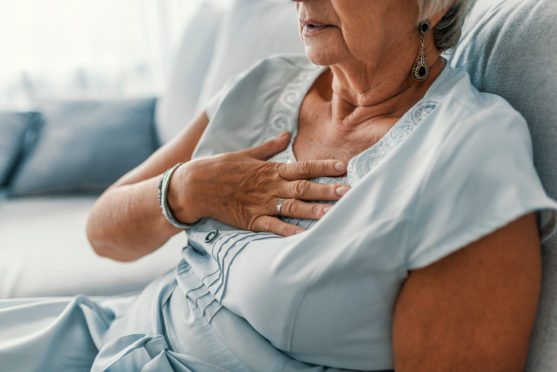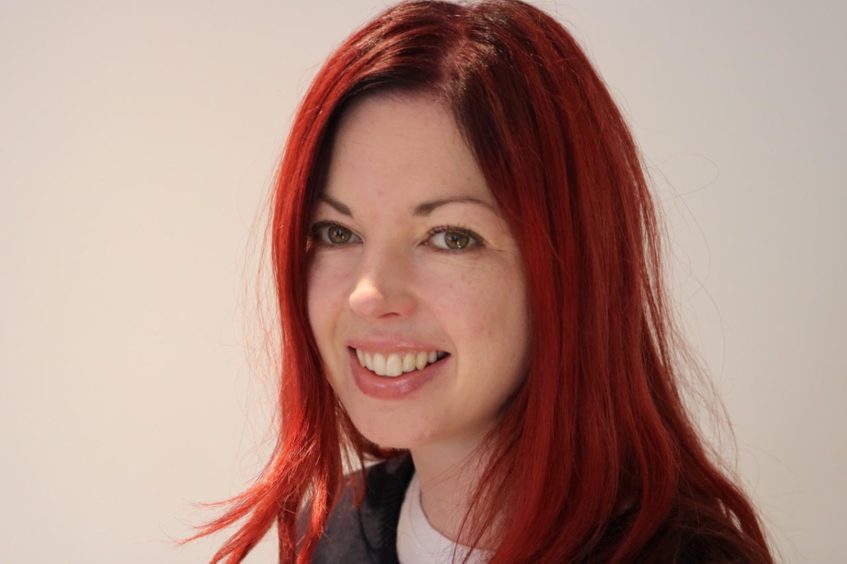
Heart attack victims are waiting three times longer than normal before calling for medical help because they dread going to hospital during the Covid-19 crisis.
Statistics from the UK’s biggest interventional cardiac centre, at the Golden Jubilee Hospital in Clydebank, reveal the average time heart patients wait before calling for help jumped from 70 minutes to 180 minutes last month.
Experts fear it is a major reason why an extra 194 Scots died from heart disease and strokes over four weeks last month, compared with the five-year average.
And they fear hospitals could be battling with the health consequences of people staying away for the next three years.
The new figures come amid widespread concern the coronavirus epidemic is leading to a marked increase in deaths from other conditions because people are avoiding hospital or surgery and treatments or consultations are cancelled.
National Records Scotland figures show that over four weeks last month there were 1,001 more deaths in Scotland not linked to Covid-19 than the five-year average.
They included 340 extra dementia and Alzheimer’s deaths, 339 classed as “other” causes; 158 extra cancer deaths but 30 fewer respiratory deaths.
The Golden Jubilee Hospital increased its catchment area at the start of the pandemic, taking patients from Dumfries and Galloway, Ayrshire and Arran and part of Lanarkshire, to allow hospitals there to concentrate on coronavirus cases.
Despite that there has been a 10% drop in the number of patients sent there with the most severe heart attacks, involving complete blockages. And the number of lesser heart attacks involving partial blockages has fallen by up to half.
Professor Hany Eteiba, Associate Medical Director at the Golden Jubilee, said: “Patients are risking their lives by not calling for help immediately.
“There is a serious risk of dying from a heart attack if they do not seek immediate help. Calls should be made within 15 minutes of heart attack symptoms. There is a golden hour for treatment, otherwise 50% may die.”
The earlier cardiologists treat a blocked artery, the better the chances of good recovery for patients. Professor Eteiba said: “I suspect the excess in non-Covid deaths contain those who delayed seeking treatment for heart attacks.
“When we asked patients why they delayed calling us they told us they thought we were too busy with Covid patients, or that they would catch Covid in hospital. Others said they did not want to be separated from their families.
“One patient cared for his wife and did not want to leave her. We have adequate measures to protect patients from Covid and excellent telephone and online ways of helping them to keep in touch with families.”
Heart attack symptoms can include tightness, heaviness or severe pain across the chest with nausea, vomiting and pains down the left, right arm or both arms. Symptoms can be milder but should not be ignored, according to professor Eteiba: “When you come along later the magnitude is bigger. The sooner you present, the less heart muscles get damaged and the better the survival.”
Consultant cardiologist Dr Robin Northcote said the reduction in people going to hospital, despite being seriously ill, meant some non-coronavirus intensive care units are just half-full. He said: “The next two to three years of elective work will be absolutely colossal.
“I am seeing patients whose heart conditions have deteriorated because they did not seek treatment earlier. They have ignored chest pain for two months and their heart muscle is now damaged.
“They now have grossly swollen ankles, a sign they now have heart failure. There are also patients out there who have not survived because they ignored the symptoms.”
He said the problem was not just with patients, but also the approach being taken by the healthcare system, NHS24 helpline and some GPs.
“Patients are struggling to get help from NHS24 or, at times, their GP. Go back to your GP and insist. Do not ignore chest pain or breathlessness without exertion. Dial 999.”
Jane-Claire Judson, chief executive of Chest Heart & Stroke Scotland, said: “Sadly, the new figures on excess deaths are probably the result of fewer people presenting at hospital when they suspect a heart attack or stroke.
“We need people to remember that serious medical conditions still exist despite coronavirus. We understand people are afraid to go to hospital or they don’t want to be a burden on the NHS, but it is vital we all still take urgent action and continue to treat stroke and heart attack as a medical emergency.”
Scotland has one of the highest mortality rates of heart disease with about 10 people each day suffering a heart attack.
More than 30% of Scotland’s annual death toll of almost 60,000 are people with heart disease or circulatory problems.

Enjoy the convenience of having The Sunday Post delivered as a digital ePaper straight to your smartphone, tablet or computer.
Subscribe for only £5.49 a month and enjoy all the benefits of the printed paper as a digital replica.
Subscribe